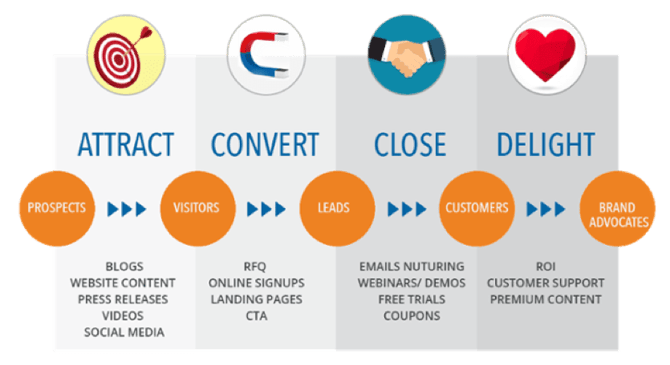When did you last give any thought to your keyword strategy? Perhaps it's been a while since you checked how well your keywords are performing? If this is true for you, then it's time to make some changes.
The key purpose of keyword research is to gain a deeper insight into your audience; how they search online, which topics most resonate with them and which companies they engage with. Without a keyword strategy in place your content runs the risk of not being sharply relevant to your audience, which will eventually erode your search engine ranking.
Many companies overlook keyword research, basing their strategies on assumptions rather than data. This is akin to chasing traffic through paid media and advertising rather than attracting valuable individuals to you when they are most likely to be responsive. Traffic chasing casts too wide a net. You might generate a lot of traffic, but it will largely consist of people who actually aren’t interested in your content. This will generate a high bounce rate and again, erode your search rank.
To garner quality traffic which turns into quality leads you need to do the keyword groundwork. There are no short cuts to doing this properly. You need to understand your buyer personas' search habits, the keywords they are using right now and build a strategy to attract them with content that uses their keywords in an intelligent, meaningful way. Finally, you need to revisit your keyword strategy at least twice a year to make sure it's still current.
What is Keyword Research?
 Keyword research is defined as the practice Search engine optimisation professionals use to find specific terms (keywords) that people use when searching a particular subject online.
Keyword research is defined as the practice Search engine optimisation professionals use to find specific terms (keywords) that people use when searching a particular subject online.
The proper use of keywords helps users find what they're looking for and helps search engines recognise what your content is about. A strong keyword strategy is imperative to generating relevant, valuable content and a good user experience on your website.
Before we delve into how to get your keyword research done, you need a sure fire starting point for your strategy, namely; the buyer’s journey.
What is the Buyer's Journey?
The buyer's journey is the process followed by each of your site's visitors on their way towards becoming a fully-fledged customer. Traditionally it encompasses the following stages:
• Awareness – the visitor is experiencing symptoms of a problem but needs to do more research to correctly identify it.
• Consideration – the visitor now understands their problem and has an idea of how to solve it, but needs to consider multiple approaches to find the right one for them.
• Decision – the visitor has completed all their research and is now ready to decide on which solution will best serve them. They're ready to make a purchase.
Now, the above probably isn't new to you. Maybe you're fully aware of the nuances of your buyers' respective journeys. You're probably wondering how this applies to your keyword research, and how it's going to help you.
Well, let's take it a step further and dive a bit deeper into the buyer's journey, and see how we can tweak keyword research to fit it.
Aligning Keyword Research to the Buyers' Journey

The Blissfully Unaware
We could consider this the pre-stage of the buyer's journey, in which your potential target has zero awareness of any problems or symptoms, and everything seems to be going swimmingly for them. Can you do keyword research for this stage? Absolutely.
Focus your keyword research here on building a target audience by seeking out potential terms people might search before starting to think about your product. Your goal is to develop an audience by finding topics that'll interest them, and don't necessarily address a particular pain point. This is how you attract the right people to your site before they realise they need you.
Those Becoming Aware
This audience member is feeling the twinging of awareness. They know something isn't quite right, and they're keen to find out what it is and how to name to it. They're not quite sure what it is your brand does at this stage, or even how it could help them (since they're not even sure what's wrong with their situation to begin with). So how does this impact your keyword research?
Start off by making a comprehensive list of all the problems your product or service solves. Now plug those examples into a tool like KeywordTool.io. Select the ones you have the best possible chance of ranking for, factoring in SERP and PPC competition.
Ask yourself how you can address the identified problems through content that'll help shift your target further along their journey. It could be in the form of landing pages, or maybe a blog post. Either way, you'll be able to come up with some strong ideas.
Those Seriously Considering a Fix
At this point your target should have a name for their pain point, and they're considering all their options carefully. Now's your opportunity to position your brand as the answer to all their problems. You don't want to come off salesy or pushy though so keep it subtle. How do you do this in your keyword research?
Take a look at the descriptors associated with your product, service or solution. These descriptive terms can go a long way towards helping you find suitable keywords. If you're not certain what they might be, do a little research – you can draw some fantastic data by using your Net Promoter Score feedback. You need to determine your customer’s language used in reference to your type of value proposition.
Those Ready to Make a Decision
By now your target is clued up on their problem, they've considered all the alternatives and they're ready to make an informed decision. You can capitalise on this stage of the buyer's journey by focusing your keyword research on concepts like comparisons between your products and those of competitors, or specific product features over products that don't boast the same feature set.
Put your "brand vs" into any keyword tool, and see what results are returned. This should give you an idea of areas to focus on. Once you know what your keywords are, you can consider reaching out to comparison sites, sites that focus on Q&A and your affiliates that blog about tools. Moz offers a tip, suggesting that you ask your promoters, once gleaned from your NPS score, to contribute to some of these sites about your product. In doing so your customers will highlight what they think about your offering.
Those Ready to Level Up
You may be thinking, "What level? The Buyer's Journey ends at the Decision phase, doesn’t it? Not quite – you still want to take your buyers from new customers to dedicated, loyal evangelists who are chomping at the bit to tell everyone how great you are.
Consider taking a closer look at your support requests, live chat logs, and commonly asked questions relating to your product or service. The key here is to use your research to address issues your customers may have, before they even think to ask. This is especially important if you're an organisation offering subscription-based services. By knowing what your customers need help with, you can start by creating landing pages and content that addresses their queries.
Taking your keyword research to the next level might mean a bit more SEO work, but it's worth it in the long run to see your target audience growing.
Ready to start you keyword research? We’ve created a quick checklist to run through so you are sure not to miss anything important.
Checklist for your Keyword Research Process
1. Am I staying client-focused?
It's important to keep abreast of trends in customer searches, as these have a direct influence on your choice of keyword strategy. Latest trends show that it's increasingly common for searchers to use queries longer than four words, indicating the importance of factoring in long-tail keywords, and not just short phrases or single keywords. Staying ahead of trends in search behaviour is guaranteed to get your keyword strategy off to a good start.
2. Have I mined every last resource?
While Google may be your go-to for keyword ideas, it's important not to neglect other tools and sources in the process. Look at the tools we mentioned above, and befriend platforms like Moz, WordTracker and SEMrush. These are great for finding additional insights and overlooked keywords on your web pages. Another excellent source of research is social media and support forums.
3. Have I included long-tail keyword research?
If you're not using long-tail keywords, you should be. Given the future of voice search - Google, Siri, Cortana, Alexa - it's become even more important that your content is littered with long-tail keywords. With less competition for ranking, you'll see great ROI results in the long run. Don't let the lower traffic numbers discourage you. Searchers using longer phrases are more specific as they are actively searching for a solution, making them more prone to take action.
4. Am I already ranking for this phrase?
When developing your keyword strategy, it's valuable to know how well you currently rank for your chosen keyword phrase. There are many tools online that can help you get ranking data, such as HubSpot or Moz. Knowing where you're starting off from a ranking perspective helps to create a launching point for your keyword strategy.
5. Will my new page display my keyword phrase?
Don't be surprised if you don't see results when your keyword strategy involves minimal mentions of your target keyword phrase on your web pages or blog posts. You don't want to be penalised for spamming each page with your strategic keywords, but it's vital you place them naturally on your pages, so they are easy for search engines to crawl.
6. How much traffic do I receive?
If you delve into your website's analytics, you should get a ton of keyword data. This data is valuable when analysing the keywords used to reach your site, and in deciding how to adjust your content strategy to boost keyword rankings. Remember not to be discouraged if you find a keyword isn't searched that often, or if a high-ranking keyword on Google only brings in a handful of visitors. It may only bring in a few visitors, but if they're a good match for your product/service offering
7. Am I receiving traffic for my keyword phrase and similar ones?
Keep checking your website analytics to see which relevant keywords people are searching for - you may find some you never even included in your keyword strategy. As you create content, you open up new opportunities for the use of an array of related keywords or phrases. Make sure you grab the opportunity to boost your strategy using similar phrases.
8. Have I got great calls-to-action?
The whole point of creating content and having a solid SEO campaign boils down to driving users or searchers to commit an action. This builds good leads and better customer engagement. The last thing you want is putting in loads of effort on a keyword strategy and content but neglecting to indicate to your visitor what they're supposed to do. Make sure you create strong calls-to-action that clearly indicate the required activity from your visitor.
9. Are my keywords mapped to the right pages?
Make sure you get the most out of your keyword strategy by mapping specific sets of keywords to associated landing pages. Ensure that your landing pages are relevant by analysing the keywords drawing traffic to your pages and matching the intent of each visitor to a specific page. Most will start off using broad keywords and become more specific as they progress along the buyer's journey.
10. Have I got pages that support internal linking?
Your content marketing strategy gets a boost from SEO when you link related pages to each other. This means creating opportunities to link areas where your strategic keywords are located to relevant pages in the anchor text of their blogs or content.
Your specific keyword research process needs to relate to your business, your targeted persona and your marketing goals. SEO forms a large part of this process but should not be the main focus. Instead your research should be based on a combination of SEO and what your buyer personas are actively searching for. Tailor your content around solving their pain points, and content success is sure to follow.
Keyword research tips to get you started
Everyone has their own keyword research process to catch their leads. There are two or three ways of doing it, but casting a wide net without a clear intention will leave you empty-handed and out of pocket. What you add or remove from your keyword research process is pivotal to your success or failure. How your keyword strategy differs from that of competitors is how you structure your process.
Monitor Your Social Media Closely
Your social network channels are the places you're most likely to see what your target audience is chatting about firsthand. Twitter is an especially lucrative source of information for keyword researchers, thanks to Twitter chat's hashtag feature. Using tools like Tweetchat or Twitterfall makes it possible to enter a keyword and see how many recent tweets include that keyword along with a hashtag.
Keep a Close Watch on Your Competitors
Knowing what your competitors are bidding on is helpful when it comes to spotting keywords you may have missed out on, or to inspire you to expand your keyword list. It's also possible to spot accidental keywords they may be ranking for and then work towards creating better content for those specific keywords. Tools like SEMRush are helpful to do a little competitor keyword bidding 'spying'.
Use the Right Tools
There're a wealth of great tools online that'll equip you in your keyword research endeavours. Among the list are the following:
- Bing
- Wordtracker
- Seed Keywords
- Ubersuggest
- SERPWoo Keyword Finder
- Google Keyword Planner
- Wordstream
- Niche Laboratory
- Keywordtool.io
Keyword research is an essential part of ensuring your SEO strategy is successful. Don't be tempted to rush through the process - take your time and focus on in-depth research that'll help you become an SEO hero!


